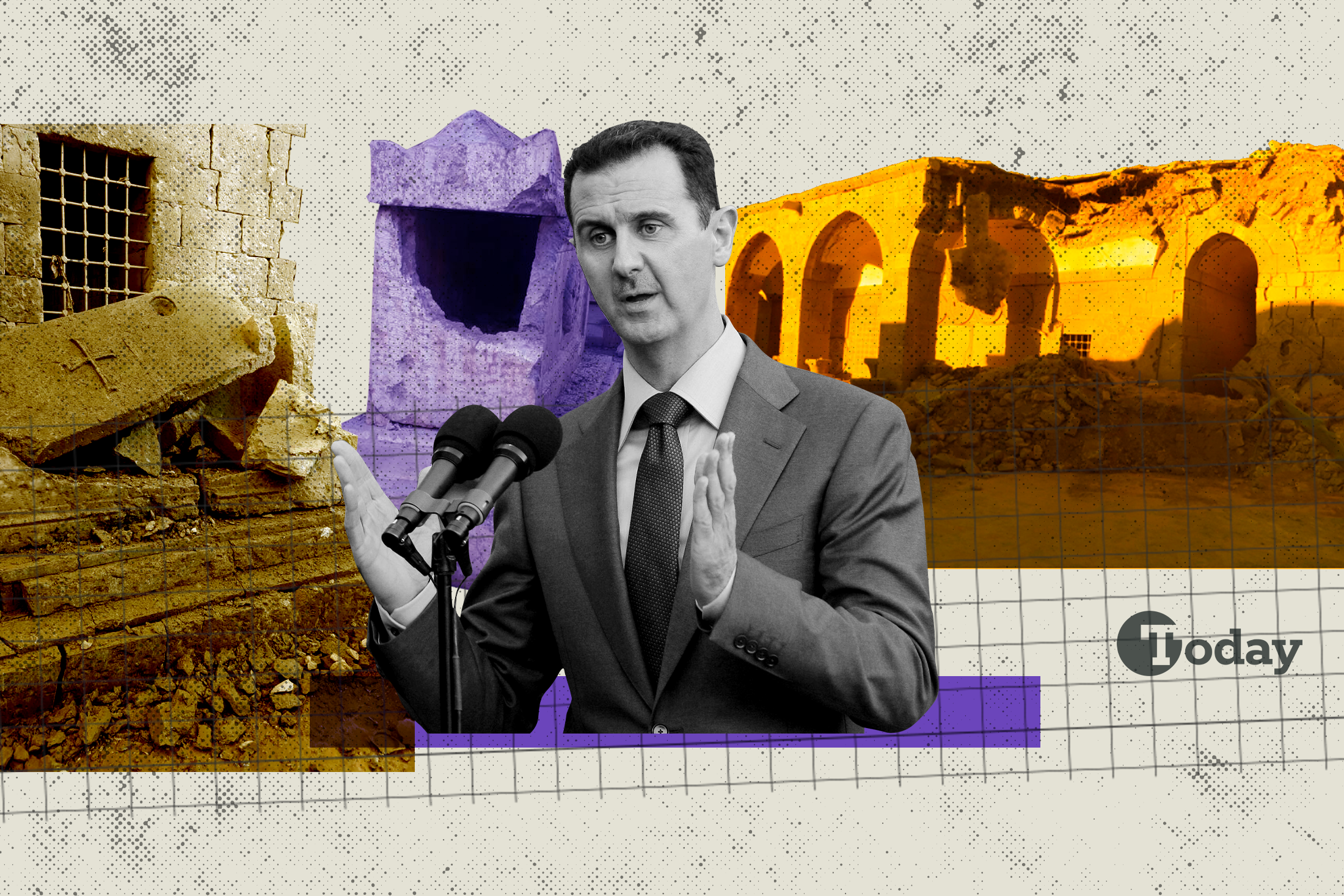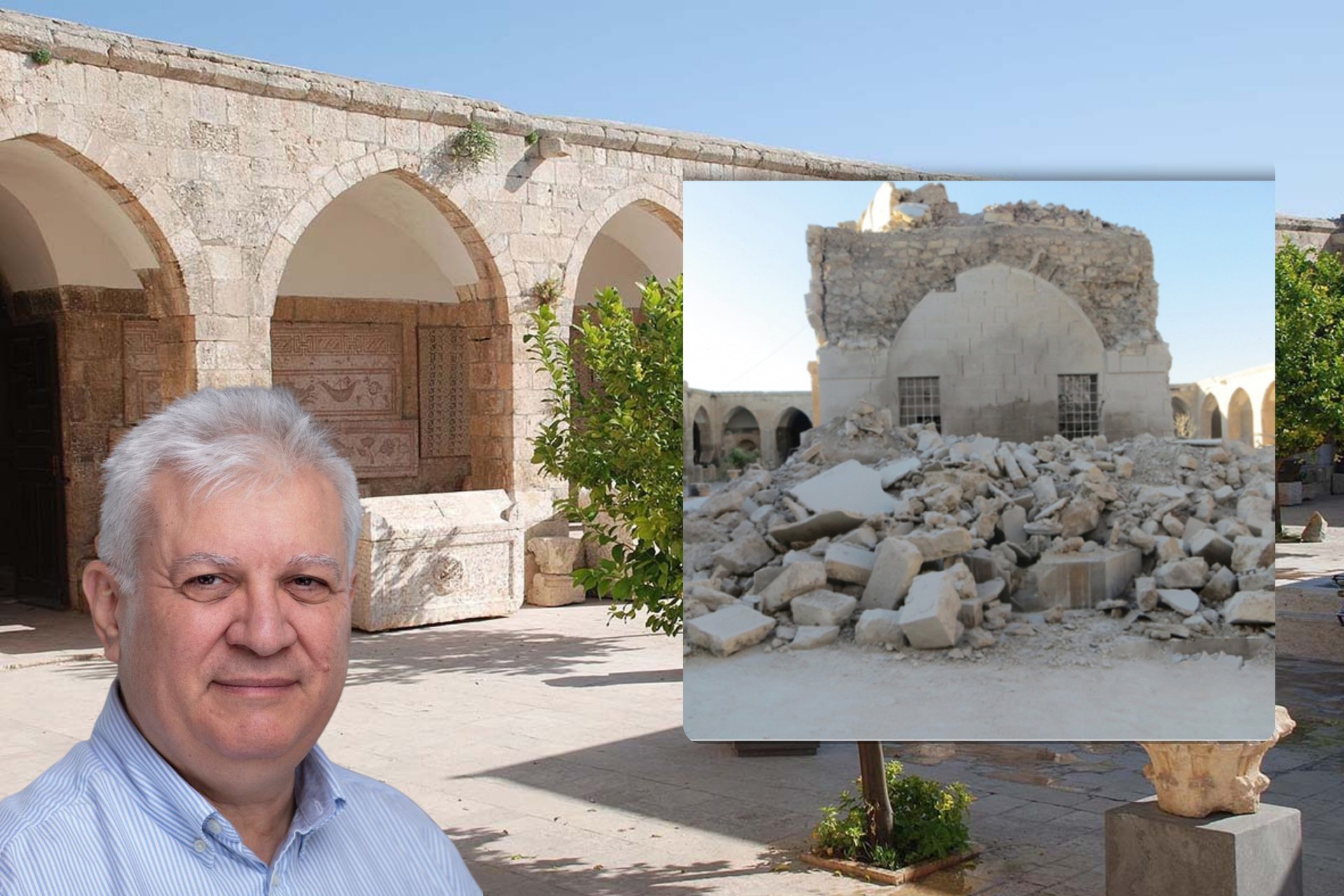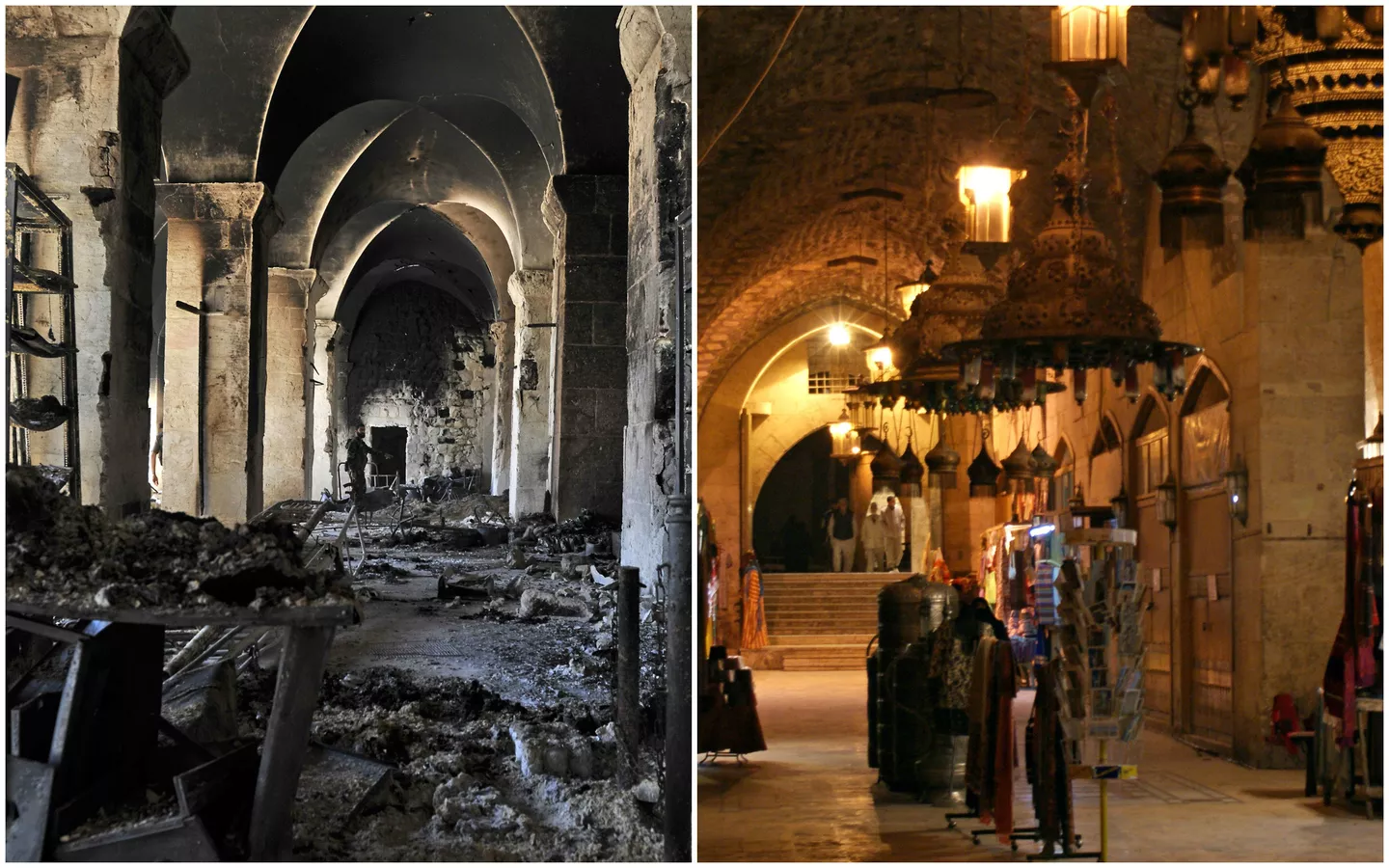
In an exclusive interview with Türkiye Today, Amr Al-Azm, Professor of Middle East History and Anthropology and co-director of the ATHAR Project, discussed Türkiye's vital role in safeguarding Syria's cultural heritage during the civil war.
He highlighted Türkiye’s support in providing safe operational bases for archaeologists and activists, enabling initiatives like The Day After’s Heritage Protection Initiative.
Despite challenges, Professor Al-Azm emphasized the importance of preserving Syria’s ancient legacy for the country’s future, advocating for collaboration between local stakeholders, international organizations and governments to protect and restore its cultural heritage.

“Türkiye provided us with a safe base of operation to conduct training and capacity-building activities for Syrian archaeologists and activists working to protect cultural heritage in areas outside regime control,” Professor Al-Azm explained.
This support enabled initiatives like The Day After’s Heritage Protection Initiative (TDA-HPI) to empower local heritage professionals and activists. The United States also contributed funding for various projects in regions like Idlib, further strengthening these efforts.
By the end of 2015, the Assad regime controlled less than 30% of Syrian territory. According to Professor Al-Azm, five of the country’s six UNESCO-listed World Heritage sites were outside regime control, leaving the Directorate-General of Antiquities and Museums (DGAM) with limited capacity to intervene.
Before 2012, no disaster or emergency planning was in place, and museum records were outdated, with security arrangements severely lacking. “The lessons from Iraq’s Baghdad Museum looting were not learned, and efforts to implement change were rejected,” he said.
Such efforts only started to be put in place when Professor Maamoun Saleh Abdulkarim took over in 2012.

Professor Maamoun Saleh Abdulkarim, former Director General of Antiquities in Syria between 2012 and 2017, explained to Türkiye Today:
"I served as Director General of Antiquities from 2012 to 2017, focusing on protecting Syrian museums from political influence. We succeeded in preserving most collections, despite the challenges. After my tenure, I returned to my academic role at the University of Damascus.
In 2017, I disagreed with plans for the Sulaymaniyya Takiyya, built by Sultan Suleiman I in the 16th century. I rejected a proposal from the Syrian Trust for Development, linked to the former president's wife, as it aimed to turn parts of the building into commercial projects," he added.
Professor Abdulkarim explained that after rejecting the project submitted by the Syrian Trust for Development. He had similar objections to their projects in Aleppo following the end of the war in 2017. Since 2022, he has been working as a university professor at the University of Sharjah, focusing entirely on his academic career.
The war exposed Syria’s ancient heritage to a range of threats, including military bombardments of museums and archaeological sites, subsistence looting driven by economic desperation, and industrialized looting by groups like Daesh.
“The greatest burden to protect Syria’s cultural heritage during this conflict has fallen on local stakeholders and non-state actors,” Professor Al-Azm emphasizes. In areas like Idlib, local councils, nongovernment organizations (NGOs), and networks of heritage professionals and activists developed creative solutions to promote awareness, strengthen community ownership, and mobilize against looters.
However, their efforts received limited recognition and support from the international community.

Professor Al-Azm highlights the success of initiatives like the ATHAR Project and TDA-HPI. These NGOs have supported local heritage professionals through training, emergency stabilization efforts, and detailed documentation of cultural destruction.
One notable achievement was the protection of the Ma’ara Al Nu’man Museum, home to mosaics and artifacts from the Dead Cities region, despite repeated bombings.
For Professor Al-Azm, the preservation of Syria’s cultural heritage goes beyond safeguarding artifacts.
“Syria’s ancient past is key to its resilient sense of identity,” he asserts. The shared history and celebrated culture, symbolized by museums and monuments, can serve as unifying forces in the country’s reconstruction efforts. “These spaces can help Syrians reconnect with symbols that once united them across religious and political lines,” he added.

Despite the significant losses, Professor Al-Azm remains cautiously optimistic about the future of Syria’s heritage.
“Protecting and preserving Syria’s history is about safeguarding its future,” he concluded. He underscored the need for a concerted roadmap involving local stakeholders, international organizations and governments to ensure that this invaluable cultural legacy is restored and passed on to future generations.